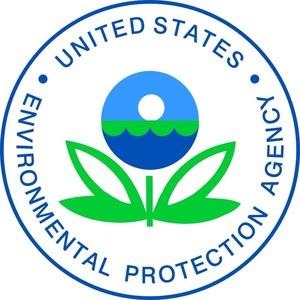EPA announces new science advisory board process

February 28, 2022
BY U.S. EPA
Today, the U.S. EPA announced the implementation of a new process by which the Science Advisory Board will assess the science that informs decisions regarding agency proposed rules. The new process will restore opportunities for peer review and strengthen the independence of the board. The improved process builds on the principle that early engagement with the Science Advisory Board is a priority and will best enable EPA to benefit from the expert advice received from the board.
“Everything we do as an agency must adhere to the highest standards of scientific integrity, and today’s action is a major step towards stronger, independently reviewed science,” said EPA Administrator Michael S. Regan. “This new process, Science Supporting EPA Decisions, will allow EPA to effectively engage the Science Advisory Board while ensuring the important independent advisory status of the Board is maintained.”
This new Science Supporting EPA Decisions process strengthens peer review at EPA by:
•Restoring the SAB’s role by having structured opportunities to conduct peer review of critical scientific and technical actions developed by EPA.
Advertisement
Advertisement
•Strengthening the independence of the SAB’s role by scoping and identifying the peer review need for EPA decisions.
•Ensuring EPA considers and develops peer reviewed science early in their rule-making development process.
•Restoring public faith in the EPA by ensuring the use of peer reviewed science to inform decision making.
“The Science Supporting EPA Decisions process is a victory for peer reviewed science and will lead to better EPA rule-making decisions,” said Thomas Brennan, director of the SAB Staff Office. “This process is effective immediately.”
The Biden-Harris Administration is committed to restoring the central role of science and evidence in addressing numerous challenges to public health and the environment, including climate change, environmental justice, PFAS, children’s health, air quality, water quality, contaminated lands, and many others. Durable EPA decision-making is dependent on the credibility of the science that informs these decisions. The credibility of the science depends on adherence to well established, time-tested processes and procedures for peer review that assure scientific integrity, and strong peer review depends on engaging independent external experts in a timely and rigorous manner. Today’s action addresses these goals.
Advertisement
Advertisement
A memo from Associate Administrator for Policy Victoria Arroyo, Deputy Assistant Administrator for the Office of Research and Development Christopher Frey and Director of the SAB Staff Office Thomas Brennan outlines the improved process for engaging the EPA Science Advisory Board (SAB) in the review of the scientific and technical basis of proposed EPA decisions. This memorandum was issued at the direction of the Administrator and supersedes prior procedures.
The memo was issued on February 28, 2022 and is available at the SAB Staff Office web site: https://sab.epa.gov/ords/sab/sab_apex/r/files/static/v403/Science%20Supporting%20EPA%20Decisions.pdf.
Related Stories
Bangkok Airways Public Company Limited has officially announced the adoption of sustainable aviation fuel (SAF) on its commercial flights, reinforcing Thailand’s green aviation industry. The initiative took effect starting July 1, 2025.
Avalon Energy Group LLC and Sulzer Chemtech have signed a strategic alliance and partnership agreement to scale up the production of SAF. Under the agreement, Avalon has selected BioFlux technology for its portfolio of SAF projects.
The USDA has announced it will delay opening the first quarterly grant application window for FY 2026 REAP funding. The agency cited both an application backlog and the need to disincentivize solar projects as reasons for the delay.
Neste and DHL Express have strengthened their collaboration with the supply of 7,400 tons (9.5 million liters) of neat, i.e. unblended, Neste MY Sustainable Aviation Fuel to DHL Express at Singapore Changi Airport starting July 2025.
CoBank’s latest quarterly research report, released July 10, highlights current uncertainty around the implementation of three biofuel policies, RFS RVOs, small refinery exemptions (SREs) and the 45Z clean fuels production tax credit.
Upcoming Events










